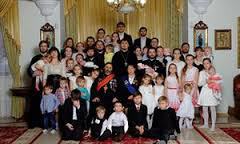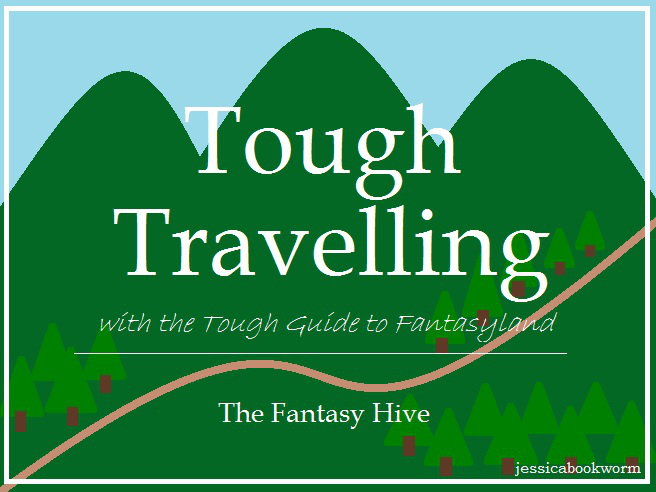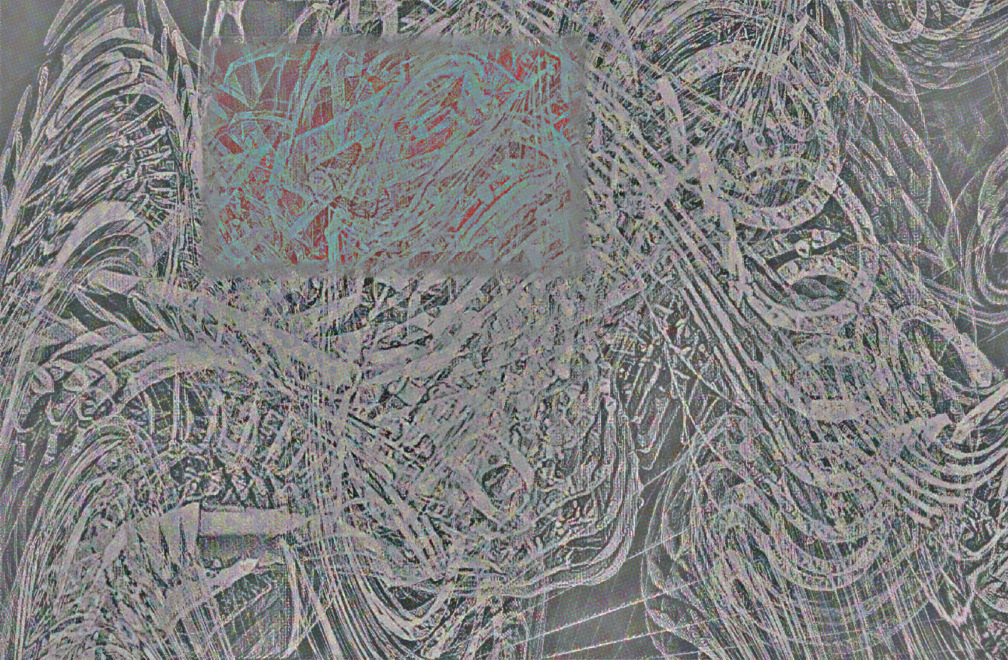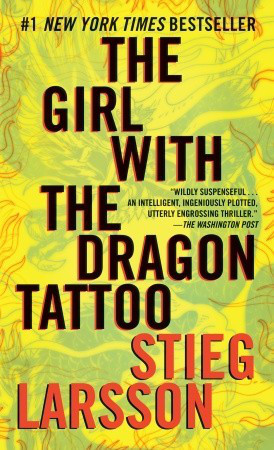Written by Paul Gardner.
This is the second part of my blog about some of my favourite Chinese novels from the last century, focusing on what the novels reveal about how the writers view political and social developments during this period.
Part one covered books that were largely set in China before the Communist revolution and during the Mao era.
The books in part 2 focus on the era of reform and opening up, after Mao’s death, during which the Communist Party has continued to maintain an iron political grip on the country, while introducing market reforms. The result is that China increasingly feels like any another capitalist economy, but one in which corruption is rife and political freedoms very limited.
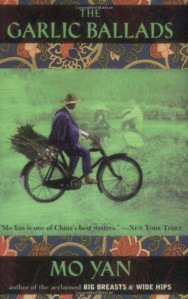 Mo Yan’s The Garlic Ballads, is ‘a rural Chinese Catch 22’, in which the little man battles against ‘capricious authority, both of the corrupt state and of family tradition’.
Mo Yan’s The Garlic Ballads, is ‘a rural Chinese Catch 22’, in which the little man battles against ‘capricious authority, both of the corrupt state and of family tradition’.
China’s most famous living novelist, won the Nobel Prize in Literature in 2012 for his work as a writer ‘who with hallucinatory realism merges folk tales, history and the contemporary’.
In this novel, greedy, corrupt local officials having ordered the peasants to grow only garlic, then refuse to take all the harvest, telling the peasants they can eat their crops themselves. When the farmers riot, their leaders are thrown into prison.
One unsuccessful rioter advises fellow inmates: ‘Try to see things as they are. The world isn’t made for people like us. We must accept our fate’.
Rachel Halliburton wrote in The Independent: ‘The powerlessness of the peasants, whether they are fighting for love among themselves, or for rights from the government, demonstrates the harshness of a political state which varies its standards of justice to suit the whims of its corrupt officials’.
Some of the most overtly political lines in the book are left to a blind minstrel. Towards the end he sings:
The Communist Party, which didn’t fear the Jap devils-
Is it now afraid to listen to it’s own people.
In recent years, Mo Yan has been criticised by some of his fellow writers ‘for praising both the government and, more particularly, Xi Jinping, the Chinese president’.
 Yan Lianke’s Lenin’s Kisses is a political fable set in the 1990s in a mountain village inhabited only by disabled people.
Yan Lianke’s Lenin’s Kisses is a political fable set in the 1990s in a mountain village inhabited only by disabled people.
We learn that the Communist revolution had led to a series of disasters in the village. As Isabel Hardman describes it in her excellent Guardian review of the book:
‘their pots and pans, tools and farm implements are seized in the “Great Iron Tragedy”, a satirical retelling of Mao’s backyard steel-making in the late 50s; they starve in the year of “Great Plunder” after officials take all their grain, as tens of millions did in Mao’s Great Leap Forward; they are persecuted in the time of “Red and Black Crimes”, a retelling of the Cultural Revolution of the 1960s and 1970s.’
As China’s economy takes off in the 1990s and some Chinese people start to look for get rich quick schemes, a puffed up local official decides the solution to the area’s problems, and his own ambitions, is to buy Lenin’s embalmed corpse from the Russians.
His plan is install it as a tourist attraction in a mausoleum ‘which exactly matches the dimensions of Mao Zedong’s mausoleum in Tiananmen Square’. This scheme is to be financed by turning a group of disabled villagers with unusual skills into a Chinese version of P.T. Barnum’s American freak show.
 Chan Koonchung’s The Fat Years is a dystopian science fiction novel set in a future (but very familiar) China, in which nearly all citizens are extraordinarily happy.
Chan Koonchung’s The Fat Years is a dystopian science fiction novel set in a future (but very familiar) China, in which nearly all citizens are extraordinarily happy.
A small group of people, unaffected by this happiness, believe that a month has somehow been wiped from people’s memories and they set out to find out what happened.
Gradually the central character, Old Chen, comes to realise just how little information is available about key parts of Communist China’s recent history.
Half way through the book, Old Chen wonders whether their quest to find out what had happened in the missing 28 days is worthwhile: ‘Should we force the younger generation to remember the suffering of their parents’ generation? Do our intellectuals have a duty to walk through a minefield in order to oppose the machine of state?’
After all, he thinks, ‘90 per cent, or even more, of all subjects can be freely discussed, and 90 per cent, or even more, of all activities are no longer subject to government control. Isn’t that enough?’
Chan clearly does believe that as a writer he ‘has a duty to walk through the minefield’. The book is an expression of the authors’s anger and frustration at the the collective loss of memory over events such as Tianenmen.
Themes such as ‘China’s excessive use of the death penalty, police surveillance and internet censorship’ are also woven into the narrative.
 Xu Zechen’s Running through Beijing takes us onto the streets of a very real and gritty Beijing.
Xu Zechen’s Running through Beijing takes us onto the streets of a very real and gritty Beijing.
The period since Mao has brought a great deal of prosperity to China. Millions of people living in Beijing, and many of China’s other cities, have standards of living that are increasingly not so very different from those of people in the west.
However, Xu’s protagonists are migrants from the countryside, doing whatever they can to get by in the city.
At the start of the novel, the picaresque hero, Dunhuang has just emerged from a prison sentence for hustling fake IDs. He is soon back on his feet, this time selling pirated DVDs.
Dunhuang moves at a helper skelter pace through the city, encountering a range of different characters.
At times the book could be mistaken for a documentary account of the lives of migrants struggling for survival on the fringes of Beijing’s booming economy. However, it is a very engaging story that is told with a sense of energy, humour and humanity.
 My last book is Yu Hua’s The Seventh Day. I also included his earlier novel, To live, in Part 1.
My last book is Yu Hua’s The Seventh Day. I also included his earlier novel, To live, in Part 1.
The Seventh Day is both a very enjoyable read and a critique on some of the injustices and social problems in today’s China.
At the start of the book, the main character, Yang Fei, finds that he has died but decides not to turn up to his own funeral and so ends up in the ‘land of the unburied’.
He meets people killed in a department store fire in which the scale of the casualties was covered up, so as not to affect the careers of local officials.
There is a couple who died when the city government are determined to demolish their apartment building, despite the residents refusing to move out. One man has been tortured by police into ‘confessing’ that he had killed his wife.
There are foetuses which had been aborted ‘to comply with population-control guidelines’, and then dumped in the river together with dead infants, whose parents had fled to avoid paying medical expenses. When journalists attempt to cover the story they are censored, so they post the details and photos on the internet.
The dead enjoy ‘fresh’, ‘delicious’, and ‘healthy’ food, in contrast to ‘those defective food items so pervasive in the departed world’ such as ‘tainted milk formula’ and ‘fecal tofu’. One of the dead observes: ‘We’re enjoying the same treatment as those top leaders’.
Consumerism as well as Chinese communism is also satirised in the story. A beautiful girl has leapt from a high building simply because her boyfriend bought her a fake iPhone.
That concludes my choice of ten great Chinese novels (including one short story) from the last hundred years. There are many books I have not yet read, and no doubt ones I have, that others will believe should have been on this list.
The next books on my reading list include Mo Yan’s Frogs and Murong Xuecun’s Leave Me Alone: A Novel of Chengdu. I’d love to hear about Chinese novels (available in English) that other people would recommend.
If you want to find out more about China during the period covered in this blog: The Cultural Revolution: A People’s History by Frank Dikotter; The People’s Republic of Amnesia: Tiananmen Revisited by Lim Louisa; Age of Ambition: Chasing Fortune, Truth and Faith in the New China by Evan Osnos
A note on translators and publishers:
The Garlic Ballads by Mo Yan, translated by Howard Goldblatt and published by Methuen
Lenin’s Kisses by Yan Lianke, translated by Carlos Rojas and published by Vintage
The Fat Years by Chan Koonchung, translated by Michael Duke and published by Transworld Publishers
Running through Beijing by Xu Zechen, translated by Eric Abrahamsen and published by Two Lines Press
The Seventh Day by Yu Hua, translated by Alan H. Barr and published by Text Publishing
Share this:

